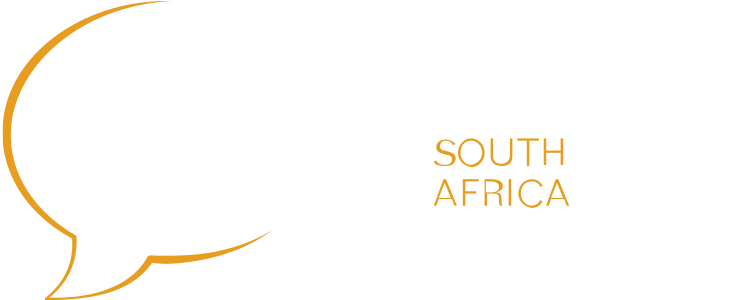Should freedom of speech be unlimited or should it be circumscribed to limit harm - a debate in a park
Campaign for Free Expression arranged a debate about free speech on a Saturday afternoon at a festival of music, debates and all round fun. The venue was the Kingston Frost Park in Brixton, Johannesburg. It was a family affair with kids running around having a ball. The adults were lazying about on the grass drinking quality coffee and food set up for sale.
In between the playing, eating drinking and general chilling to jazz music and comedy, debates were mounted to promote free expression. Although the subjects were serious, kids and adults were engaged in the topics. And, while there were differing views, the audience of all ages participated, and did so with the utmost goodwill. The Oxford Union could learn a thing or two. As Terence said: "We debated and no one died!" And I sat on the grass with an excellent cortado watching all around me.
The park was proclaimed in 1925 and hosts a memorial to 6 local men who died in the First World War.
Terence Corrigan spoke for the motion in favour of unlimited free speech and was as entertaining as he was serious. This was his speech.
"In preparing my comments, I acknowledged that I probably have the more difficult task. My opponents would seek to show that some speech should be limited. My position on this stage is that no speech should be. I am trying to make a maximalist argument, they are able to make a modulated argument.
More than this, I suspect that the weight of sympathy in this audience sits with my opponents. Some things, we just don’t want to see, and find no value in being exposed to.
And it’s for that reason, that I am not going to offer you a vision of a good society. I am not going to tell you how we deal with hatred and discrimination. I am not hoping to convince you that an environment of free speech without limit means a world of harmony, art and beautiful music.
In fact, when I say that speech should have no limits, I am not talking about constructive speech, kindly speech; respectful speech; useful speech, or common sense. Nor am I talking here about being part of the Zeitgeist, hitching oneself to a social justice movement and then waiting for congratulations for being so brave about out it.
Words have meaning or communication is impossible. So let me be clear: when we speak of freedom without limit, we are talking about allowing the sinister, the blasphemous, the pornographic, the offensive, the hateful. Or what some might consider the “reactionary”. We are talking about those things that many influential interests would rather we were not exposed to.
Let me make a small caveat. Since we cannot deal with everything in so short a time, I’m going to take three issues off the table. I am not a lawyer, and so won’t argue on the basis of law. South Africa’s law clearly restricts things. Accepted. I am not going to discuss things as they relate to the personal. I tend to think there is a different between chanting Kill the Boer and saying Kill Terence Corrigan. I also think that there is something to be said for the right of an individual to protect his or her reputation from falsehoods and malicious claims. I am also not talking here about children. Children do not carry the full responsibilities of citizenship.
Citizenship is really what this about for me. Citizenship in its fullest form is not merely the holding of a passport, but an engagement with and responsibility to the society as a whole.
It’s often said that democracy has to mean more than casting a vote. I would agree, though I would prefer to use a different term, an open society. To my mind, this is one in which people are afforded the fullest latitude to live their lives and pursue their interests, and to demand accountability from powerful institutions – indeed, from one another.
The central principle here is one of exchange. The more the scope for the exchange of anything is constricted, the less open a society is. This is especially the case when the commodity of exchange is ideas.
There is no open society if you’re tempted to impose limits on any such exchange for some or other supposed good (moral, intellectual, religious, economic).
Ideas are the seeds of societal change. Note that I say change here. I do not guarantee that they are changes for the good. Indeed, that is a promise I can’t make. Ideas may be pernicious. And when they are new, they are always uncomfortable.
I offer to you the doctrines of a Jewish prophet in an obscure corner of the Roman Empire. Or that of another prophet in the Arabian deserts a few hundred years later. I can also suggest the theological reflections of Martin Luther or John Calvin.
Let me remind everyone that each of these had a message that unsympathetic authorities wished to suppress. Millions were killed to do so. Millions still suffer persecution today.
And more than a few highly influential thinkers – and perhaps some of you in this audience – believe today that it would have been better had such systems of belief never existed in the first place.
Of course, some of you might simply scoff at this and say that religion is in any event a mere foolish superstition that with a new intellectual maturity we can, and perhaps should, dispense with.
Sure – but the expression of ideas has also been critical to every temporal movement for civil and political rights. Let us think here of the anti-slavery movement, the emancipation of women, the expansion of the franchise, activism against racism or for the acceptance and validation of homosexuality.
Here, I doubt many of you would disagree. We’ve made this progress. We want to lock it in and immunize it from threat. We may accept that more progress needs to take place, and we therefore want free speech – but only for “those things”. We want to keep the awful stuff out.
To my mind, this is a major epistemological error. What we view as positive in any context is eminently changeable. Much of what is now seen as eminently progressive – even a matter of common decency – was once viewed as decadent and unthinkable. There is boundless hubris in believing that we have the key to morality and righteousness. In a generation things may look very different. And who knows, the same tools that we have promoted to protect the wonderful progress we have made this far may well be repurposed to reverse them.
Or, as I once told a religious freedom advocate, if you want to keep the Bible, you might also have to defend Hustler.
The American writer Henry Louis Mencken once presciently argued: “The trouble with fighting for human freedom is that one spends most of one’s time defending scoundrels. For it is against scoundrels that oppressive laws are first aimed, and oppression must be stopped at the beginning if it is to be stopped at all.”
There is virtue in retaining a sense of humility.
Besides, harmful ideas are like bacteria that thrive in dark, dingy places. Put something out of reach and give it a mystique. Lock someone up for this and make of him a martyr. This is never more true than when such thoughts speak to genuinely felt grievances.
I would add that attempts to curb harmful ideas in pursuit of the higher ones have in any event a checkered history. There have been memes doing the rounds on social media (that’s a whole issue on its own!) that attempt to draw a line between contemporary “hate speech” and the crimes of Nazism. Typically, this is of “It didn’t start with concentration camps and gas chambers, it started with dehumanising words.” Let me point out that Germany in the 1920s actually had a robust legal framework on incitement and on promoting hatred. Not only did the laws exist, but offenders – including some who would become prominent in Adolf Hitler’s government – were in fact prosecuted and convicted. Hitler himself was at times barred from speaking in particular jurisdictions.
For all the good that did. For it was not the expression of the ideas but the content of the politics that led to Treblinka and Auschwitz.
Let me put it clearly: to defend free speech in its widest possible sense is not to endorse the harmful ideas that will, invariably and inevitably, find expression in such an environment. I beg you all to make the distinction between the principle and the content. To defend free speech – unlimited free speech, as the topic of tonight’s debate has it – is to defend the transmission line for all ideas.
Free speech, widely understood and without limit, is a tool. An imperfect one, one that can be abused, but a valuable one that we surrender at our peril.
That is why I commenced my argument by invoking the concept of citizenship. If it is to have meaning, it places a grave agency in our hands. It makes each and every one of us, as responsible, adult citizens, responsible for the endurance of democracy and the freedoms we enjoy.
As I speak this evening, I am deeply concerned about the direction our politics is taking. I find much of the rhetoric in our public discourse deeply disturbing. But the point cannot be made strongly enough: it is not the expression of pathological sentiments that is the threat, but the fact that they exist. For that, each of us needs to examine our own role in our democracy, and how we have reacted to the threats to it.
Do we exercise our responsibilities as citizens soberly and judiciously or do we join in social media mobs? Do we look at incendiary rhetoric as an affront to the democratic system or shrug it off? Or do we perhaps sometimes nod in agreement, because on some level we think that those targeted somehow deserve what they are getting?
Or, do we perhaps demand protection for ourselves, but want to deny it to those with whom we disagree?
So, in conclusion, I’d like to say to you all: open the gates to the good and the bad. This is, after all, the reality of the world. I am not offering you security or certainty, merely the possibility of being able to deal with it.
This is the reality of the world, and it is only by recognising evil and looking squarely in its face that we can understand and combat it. Ultimately this will come down to the quality of our citizenship.
I give you no guarantees that we can be successful in it, but I believe at least that choosing freedom gives us the best chance we have."
[Photo: Kathy Munro/The Heritage Portal]

